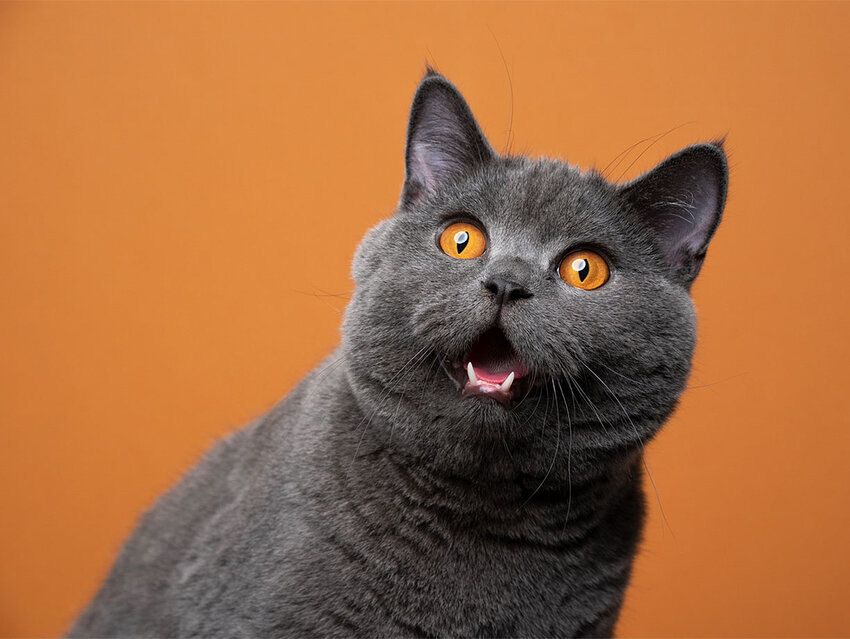Some words have definitions that perfectly align with how they look or sound. “Hullabaloo” flawlessly evokes the idea of a commotion, and “snicker” undoubtedly calls to mind a stifled, scornful laugh. This is not the case with the following list of words, though — at first glance, you might assume the definitions of these words are very different from their true meanings. Learn why “pulchritudinous” is actually quite flattering, how “puce” isn’t a sickly green, and a few other words that don’t seem to match up to their definitions.
Pulchritudinous
Adjective: Beautiful.
Describing someone or something as “pulchritudinous” is a compliment — even though the word might conjure up images of similar-sounding negative words like “putrid” (“of or characteristic of rotting matter”) or “turpitude” (“depravity; wickedness”). “Pulchritudinous” is far from those words; it was derived from the Latin word for “beauty,” pulchritudo. It was first recorded in American English in 1877, meaning “beautiful, fine, or graceful in any way.”
Suffrage
Noun: The right to vote in political elections.
“Suffrage” has long been part of the political lexicon of the United States, but at first glance, it might suggest suffering — the opposite of its meaning. The real definition is “the right to vote in political elections,” but it has taken a journey from a more religious usage. In the late 14th century, “suffrage” referred to prayers (especially on behalf of another). Both the religious version of the word and its modern definition stem from the Latin word suffragium, which meant “support” or “ballot” but was also the word for a voting tablet. It first appeared in English as “the political right to vote” in the U.S. Constitution in 1787.
Puce
Noun: Dark red or purple-brown color.
There are some words that just have a certain feeling about them. “Puce” is one of them — it feels like a drab, brownish-green color, but that instinctual guess would be wrong. Puce is actually a light, purplish-brown color, similar to mauve. The word came into English in the late 18th century from the French word puce, meaning “flea-color; flea,” which comes from the Latin word for “flea,” pucilem. Fleas aren't typically depicted as purplish-brown, but there might be a connection between “puce” and the color of a flea bite (or a scab).
In a similar case of mistaken color identity, chartreuse is a pale yellowish-green color (not purple), named for its resemblance to the liqueur of the same name. This liqueur was first produced at La Grande Chartreuse, a Carthusian monastery near Grenoble in the French Alps.
Crepuscular
Adjective: Of, resembling, or relating to twilight (especially animals that are active in twilight)
This has nothing to do with creepy-crawlies. “Crepuscular” is most often used in zoology to describe animals that appear during twilight (or at dusk). Crepuscular animals have evolved this way for a variety of reasons, from avoiding predators (or hunting competition) to staying cool in warm environments. Examples of crepuscular animals include domestic cats, rabbits, deer, bears, skunks, bobcats, and opossums.
Lackaday
Interjection: An expression of surprise, regret, or grief.
Despite sounding and looking very similar to “lackadaisical” (“lacking enthusiasm and determination”), “lackaday” has nothing to do with laziness. Instead, it is used as an interjection to express feelings of regret or deprecation. “Lackaday” emerged in the 17th century as a shortening of the phrase “alack the day” or “alack-a-day” — “alack” is a Middle English word to express sorrow or regret.
Although they have different definitions, “lackadaisical” and “lackaday” are related. “Lackadaisical” was derived from “lackaday” in the 18th century when it emerged as an adjective to describe people who were having a miserable day (those who cried “lackaday!”). Eventually, this “lack of enthusiasm” definition turned into “lazy.” Around the same time, a new word, “lackadaisy,” appeared as a synonym of “lackaday” (although it never became as popular), which could have also impacted the rise of “lackadaisical.”
Defenestration
Noun: The act of throwing someone out of a window.
Have you ever been watching an action film when suddenly, the bad guy is thrown from the window? That’s a classic case of “defenestration,” derived from the Latin word for “window,” fenestra. It was likely coined due to the events of May 21, 1618, which became known as the “Defenestration of Prague.” On that day, two Catholic deputies and a secretary were tossed out of a window by Protestant revolutionaries. Fortunately, they landed in piles of trash and survived, but the event marked the beginning of the Thirty Years’ War in Europe.
“Defenestration” also has political undertones, describing the dismissal of someone from a political party or authoritative office, as in, “They discussed the defenestration of corrupt judges.”
Noisome
Adjective: Having an extremely offensive smell.
When reading this word, your brain likely connects “noisome” to “noisy,” but this term actually relates to the sense of smell. “Noisome” originated in Middle English from “noy,” a shortened version of “annoy,” which makes sense because foul odors are annoying. It can also be used to describe something as “disagreeable or unpleasant,” as in, “She made a noisome remark about the long ceremony.”
Featured image credit: Nils Jacobi/ iStock

